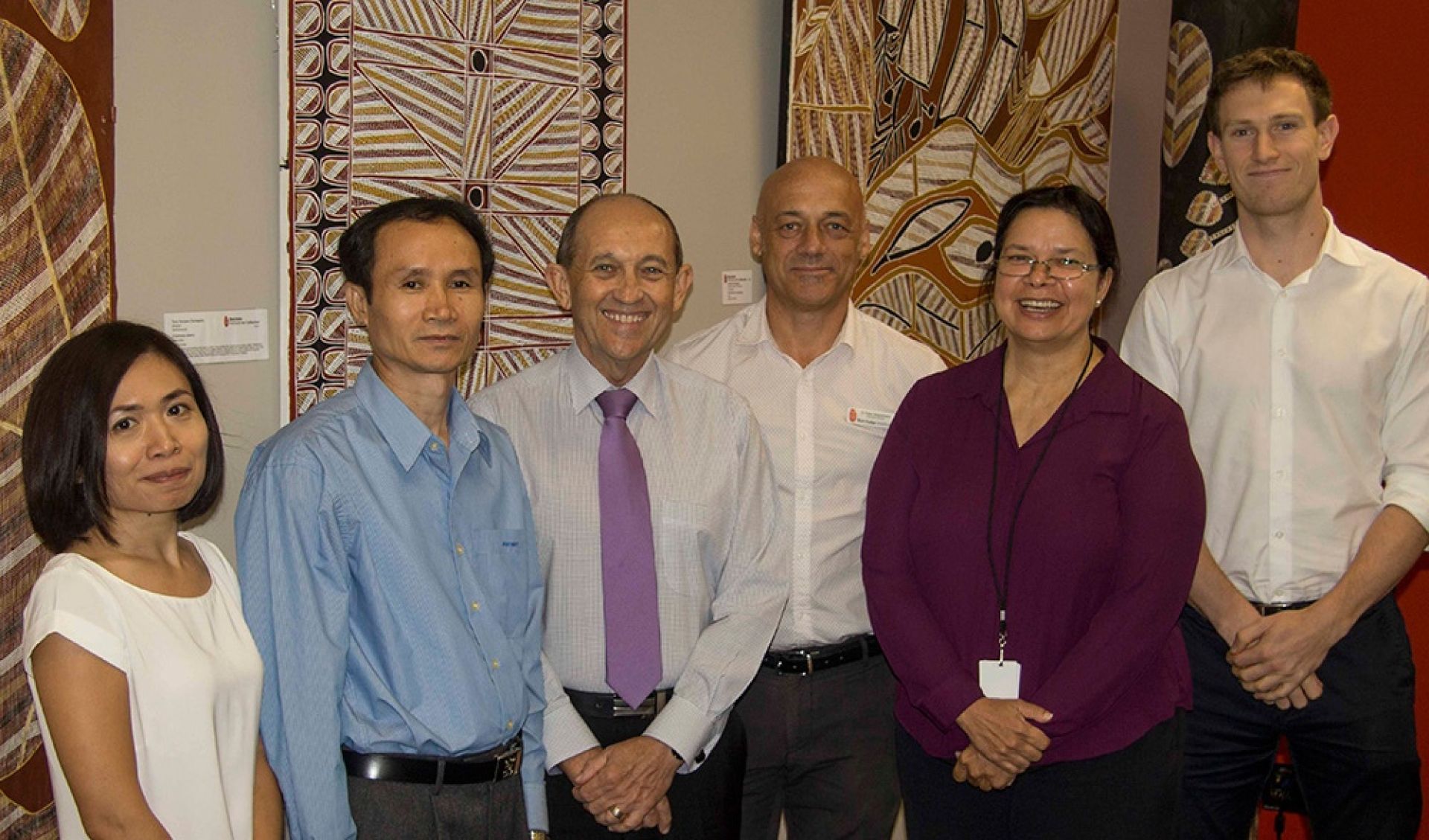

Dr Onekeo Nuannavong, Director General of the Research Institute for Education Science (RIES) in Laos, recently met with Batchelor Institute CEO Robert Somerville AM and the executive team to discuss Batchelor Institute’s education and research programs. He was joined by Mr Michael Thomas from the Department of Foreign Affairs and Trade and Ms Soumisa Sinder from the Australian Embassy in Vientiane, Laos.
In particular, this conversation addressed how our education and research programs relate to our teacher assistant and training programs, within the context of workforce development.
Dr Nuannavong was particularly interested in the work of the Batchelor Institute in training First Nations peoples who reside in remote locations and speak different first languages.
The meeting was a valuable opportunity to share the challenges, experiences and approaches to teaching and workforce development for students with diverse language and cultural backgrounds. It also emphasized the need for paraprofessional courses to provide learners with language, literacy and numeracy support – not only as they commence studies – but also throughout their education journey.
Batchelor Institute continues to work towards the education, training and research needs of Aboriginal and Torres Strait Islander peoples from a wide range of locations and dialects. These kinds of discussions and collaborations with other international educational organisations helps to further build on our understanding of the needs and requirements of cross-cultural education across the globe, as well as strengthen an international network of education providers
